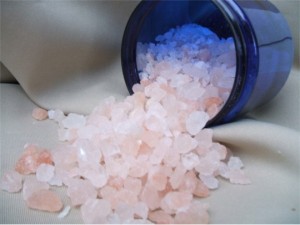Recently Gov. Corbett signed a law banning bath salts and other forms of synthetic marijuana and drugs. However, even before the ink dried, the inevitable happened: People made new drugs. From synthetic drugs to exotic plants to cleaners and chemicals, people have found new ways to get high and continue the cat-and-mouse game with the law.

New products in works to replace banned bath salts, synthetic pot, salvia
When horror stories about bath salts and synthetic marijuana began circulating, lawmakers in Pennsylvania acted swiftly to ban the so-called fake drugs.
But manufacturers are even quicker.
Today is the first day that brands of bath salts, synthetic pot and salvia are illegal in this state.
By Wednesday, a yet-to-be-named product will be on the shelves of at least one local head shop, promising to have the same effects of synthetic marijuana.
These new drugs create a huge problem for the forensic community. Every chemical has different properties and produces different results on blood tests (see our series on DUI blood testing) and creates a unique spectrum potentially. It takes a great deal of research to establish the the standard of how a chemical should be tested and how it’s instrumental results should look. Currently, many labs are using non-validated methods which can result in false positives, false conclusions, and false convictions.
This is why any case involving new drugs should be handled by an attorney with a strong background in forensic science and in particular analytical chemistry. Whether its a possession case or a DUI drug case, the toxicology reports need to be examined by a defense attorney who specializes in these types of cases. PA DUI Attorney Justin McShane of the McShane Firm is a well respected forensic lawyer-scientist who has lectured at scientific seminars and even publishes a highly followed forensic science blog. Call 1-866-MCSHANE for a free case review and consultation.
One response to “New Designer Drugs Pose a Problem for Forensic Science”